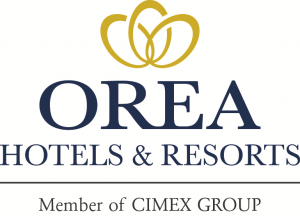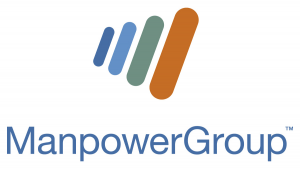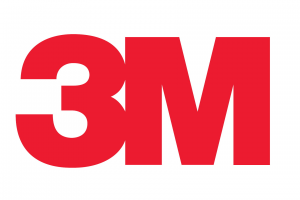
Trump´s presidential campaign: Natural simplicity or carefully selected tactics?
Description
(article based on PR lessons learned for business from Donald Trump’s presidential campaign discussion)
Natural simplicity, effective usage of lie, pragmatism, negative stories, aggressiveness, willingness to speak to the public all the time – to name just some of communications techniques used by Donald Trump during his presidential campaign. Could businesses take some of them and use them effectively during their campaigns? Natural simplicity of communication is probably one thing business could be inspired by. Trump is known for expressing himself in simple sentences and it´s something companies should learn. On the other hand, copying his style would most probably harm anybody else. Everyone needs to find his own way of media communication. This is what all panelists agreed on. Moreover, Trump´s campaign was based on permanent conflict and this is something what businesses can´t afford. They are here to do the business, not fight with media or public all the time.
About
On March 29, AmCham hosted a discussion on PR lessons learned for business from Donald Trump’s presidential campaign which was moderated by Gabriela Bechynská of Mondelez International. Erik Best (Publisher), Todd Nesbitt (Communication and Mass Media department at UNYP) and Alžběta Králová (Institute of Political Marketing) sit on the panel. Special contributors to the discussion were: Petr Andrýsek (Socialsharks), Pavel Herot (Media Tenor) and Karel Komínek (Institute of Political Marketing).
Campaign execution
Trump´s campaign was a perfectly executed PR, but at the same time his success was driven also by other factors. Some might argue that he lose the popular vote, but wouldn´t he run the campaign differently if the popular vote would count? His approach to the media was his strategy. After the campanign it´s now more than clear that what applies now, doesn´t have to apply tomorrow. He was blamed for poor data processing. He did it on purpose. He used and said only what was the most beneficial for him at the moment. On the other hand, he never refused to speak to the public, he was very good in terms of being able to improvise.
Media relations – A golden discipline of PR?
Despite the fact that Trup denied media during campaign, he gained more media coverage (53% for Trump, 47% for Clinton). „Trump’s communication strategy was aggressive, but importantly he was open and accessible to speak to the press. He was louder that anyone in the pack,“ said Todd Nesbitt. It needs to be added that media is just one part of Trump´s recent success, „Trump“ brand was created by the media in the past, but what made him a current president was all the concept. He stepped in at the right moment and he waited for this moment long time.
Social Media – Is the power of traditional media fading?
„In the past 8 years, there has been a rapid change of investment into digital media, visibility of politicans has risen thanks to Twitter. Mainstream media are fading,“ stated Karel Komínek at the beginning of the discussion on social media influence. To clarify that the story is different in US and CR. Twitter plays much bigger role in US. There are 56mil active Twitter users in US vs. 300.000 active Twitter users in CR together with Slovakia. „Effective usage of social media depends on the personal brand. Trump´s style is something that can not be repeated. He was a celebrity before, he knows how to work with masses. His style was all about one man show which perfectly suits him,“ continued Karel.
„Trump was politically incorrect and aggressive. Media took it. He was first to do that. In Czech, the style of Andrej Babiš can be compared to Trump´s,“ commented Trump´s social media strategy Erik Best. „In Czech, the public gets to know about Twitter posts mostly through mass media, therefore mass media still sets the tone of the discussion here,“ continued Erik and Todd Nesbitt agreed: „Yes, mainstream media are fading in influence, but will never disappear completely. Mass media are the ones who bring Twitter posts to life by bringing attention to them.“
Alžběta Králová enriched the debate with the explanation of differences between election data access in US and CR. „Use of data is the big strength of US political marketing - meaning collecting data about voters and personalizing the campaign. In the US, it si possible. You really know who are your voters, what works and what doesn´t so you are able to adjust the communications according data analysis. Czech legislation doesn´t allow this.“
Fake news as a new phenomenon
One of the attendees, Emil Jimenez of Passion Communications, raised the question of what´s true and fake and shifted the discussion to a philosophical level : „People are not able to discern what is fake news. The social media generation does not understand what is truthful and what is untruthful.“ Perhaps the problem is not whether the social media can determine what is truthful or untruthful, but whether the mainstream media, which used to the primary arbiter of what was fact or falsehood, has reacted to the popularity of ideologically based opinion shows by shifting the news segments away from accumulation of fact and toward a presentation of only those facts which fit a certain political worldview. In other words, perhaps the reason why the social media generation has trouble distinguishing between real and fake news is that real news has made it harder to do so. Todd Nesbitt added: „A media transformation is underway. It is no surprise that the public tunes out the mass media – commercial news organizations are doing a terrible job, levels of public trust in journalism are at the lowest point in history. As a result, people seek messages that satisfy them, and they can find these in a number of different alternative media available.“ Not all people are interested in seeking the real truth. They seek their own truth or the sensation.
For companies, this makes the environment a little more dangerous, because it makes them more vulnerable to attacks. The key is to maintain credibility and presence. Step one is to avoid fake new purveyors, even for advertisement. Step two is to control your message, and, if at all possible, the channels for distributing that message.
Echo chamber effect
Unless we consciously chose to read several different interpretations of news, we have no access to information that would make us change our opinion. We live in our own social bubbles we created: an echo chamber that reinforces our current beliefs and guides their development into a more extreme form of those attitudes. Those bubbles exist in offline life and online is just reflecting it. Erik Best commented: „For years, media’s purpose was to deliver advertisement. Publishers had to change their model. In Czech, publishers decided that media will become a tool for promoting their interest. The idea that Facebook is there to filter fake news is naive. We are willing to hand over the task to them but we do not know what their agenda is.“ Petr Andrýsek asserted: „Only 3% of content on Facebook is business ads, Facebook is about giving people the power to share what is relevant for them.“
The echo chamber is especially powerful tool for marketing a product. But it is also feeds oxygen to the fire when a crisis hits.
What´s next?
The positive is that people still tend to trust experts rather than their friends. „The percentage of people we assumed were going to social media for news dropped in the US closer to the election date, with only 14% calling it their most important source,“ claimed Todd Nesbitt. All generations have to face digital threats, youngsters are tricked by hoaxes as anyone else. Erik Best repeated: „We are living in an environment nothing that could be applied earlier is necessarily safe.“ We need to be aware of this and always be alert. Nations have to be educated to be able to find their way around. Differentiation will matter – in politics and business as well. We can expect that in the future the public will be more and more demanding to know who the politicans or brands identify with, what side they are on... so that the public can decide who they are going to choose.
Share: twitter linkedin facebook
Log In




